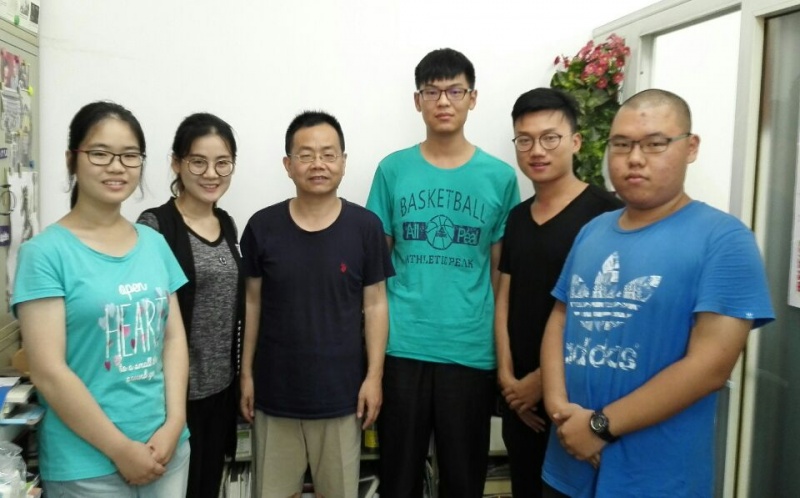| Line 85: | Line 85: | ||
<figure class="effect-ming wow zoomIn animated" data-wow-delay=".5s"> | <figure class="effect-ming wow zoomIn animated" data-wow-delay=".5s"> | ||
<a href="images/img3.jpg" class="swipebox"> | <a href="images/img3.jpg" class="swipebox"> | ||
| − | <img src=" https://static.igem.org/mediawiki/2016/thumb/3/3b/T--Tianjin--Co-NKU-1.jpg/ | + | <img src=" https://static.igem.org/mediawiki/2016/thumb/3/3b/T--Tianjin--Co-NKU-1.jpg/799px-T--Tianjin--Co-NKU-1.jpg " /> |
</a> | </a> | ||
Revision as of 03:19, 25 September 2016
<!DOCTYPE html>
OUR HP WITH TEAM NJU iGEM
On the day we visited professor Cunjiang Song, we conduct a human practice with team Nankai iGEM.
We visited team Nankai’s laboratory in Nankai university. They introduced to us about the general situation of them. We discussed with their members about project affairs about life in the laboratory. We took a photo together finally.
We are delighted to communicate with members of NKU iGEM. We hope that our rapport and friendship would last forever!
OUR HP With TEAM NJU iGEM

" We found that Rhodococcus can degrade intermediate product TPA efficiently. Thus we got in touch with Prof. Aijun Liao with the help of iGEM NJU. He presented us the Rhodococcus jostii RHA1 which helps us a lot. We are grateful to what he has done. "

" Du: Hi! Xu: Hi! Du: I’m Shuangshuang Du of team Nanjing_China from Nanjing University. Xu: I’m a member of iGEM_Tianjin. Our team would like to communicate with you. Du: Sure. "

" Du: By what means? Xu: We intend to biodegrade PET using yeasts. How about your project? Du: Photobiological hydrogen production. We both are environmental projects! Xu: Yes. Then we should have plenty of common topics. What strains do you use? Du: We use Escherichia coli. Xu: We use yeasts, but the other day when we consulted theses, we found that Rhodococcus might meet some of our needs. "

" We use yeasts, but the other day when we consulted theses, we found that Rhodococcus might meet some of our needs. Searching through the internet, we learnt that Pro. Wanjun Liao from your university had deep researches in this area, so I wonder if you are familiar with him? gao Du: No. Though I’m not acquainted with him, I can ask my schoolmate in the School of Environment about him for you. Xu: Oh, yes. We’d really appreciate your help! By the way, do you have interflow with Zhejiang University at the moment? Du: I took part in its summer courses personally, and the courses have ended. We don’t conduct any interflow with Zhejiang University currently. Xu: I see. We were engaged in our final exams some time ago and just began our project, too. "

" Du: Hello! The teacher replied and agreed. Please send your address to me. Xu: Ha-ha! Du: So I think I’ll post it to you tomorrow by SF express. Xu: Lots of thanks! I’ll give you our address right now. "

" Du: Hello! The senior said she just inoculated two plates and she still needed them, so she was about to amplify the culture today and give it to me after plating. So I’ll post the plate to you. What do you think? The senior said she’d make it in 3 days. Xu: Oh, okay. Thanks for your effort! "
Communication With BUAA

Brief introduction of Dr. Jun Yang
Dr. Jun YANG is an associate professor at Beihang University in Beijing, China. He received a B.S. degree in chemistry in 1984, an M.S. degree in applied chemistry from Harbin Institute of Technology in 1987, a Ph.D. degree in environmental engineering from Tsinghua University in 1998. Recently, he worked in Department of Engineering Science at Oxford University for one year as visiting scholar. His principal research interests are in the areas of water and wastewater treatment, environmental biotechnology, environmental economics and water-sediment science. He has authored or coauthored over 20 technical publications and 1 textbook. He was awarded the Outstanding Contribution Prize to National Long-and-medium-term Program for Sci-Tech Development of State Council of China in 2004 and Presidential Distinguished Teacher Awards in 1991. An active member of numerous societies, he is the member of International Water Association, the Fellows of the Chinese Society for Water Environment and Chinese Society for Environmental Economics.

Trip to BUAA
We visited Dr. Jun Yang in Beihang University and he gave us some advice on plastic degradation and we proposed to help establish BUAA’s iGEM team. Dr. Jun Yang found a worm that could eat the plastic and we are really interested in the two bacterium which are able to degrade PE. We contacted Dr. Jun Yang by email and sent our scheme about these two strains to him. After the correspondance, we fixed a time and interviewed him in BUAA. We departed for BUAA in the early morning by Uber, intercity train and subway. We demonstrated our ideas by slides and raised many questions to him. He answered our questions patiently and put forth some improvements on pur ideas. Also he told us some practical tricks in the experiment. At last we promised that we would try our best to help BUAA build their iGEM team if they intended to have one.
Communication With PKU
Six representatives of Tianjin University iGEM 2016 Team arrived Peiking University on a rainy afternoon of 19th August and had a long lovely dicussion meeting with three other teams, Beijing Institute of Technology(Team BIT-China),University of Chinese Academy of Science(Team UCAS) and the ebullient host, Peiking University iGEM team.
On the very beginning of the meeting, each team leader gave a brief introduction on their projects. And team Tianjin's project attracted great interests in the environment problem of PET-degradation. After each team's presentation, we started to share our new ideas and problems we crossed with during the experiment, which was a very helpful and encouraging session where we help each other fix the experimental problems.
In a nutshell, this short trip to Beijing is a win-win collaboration.








